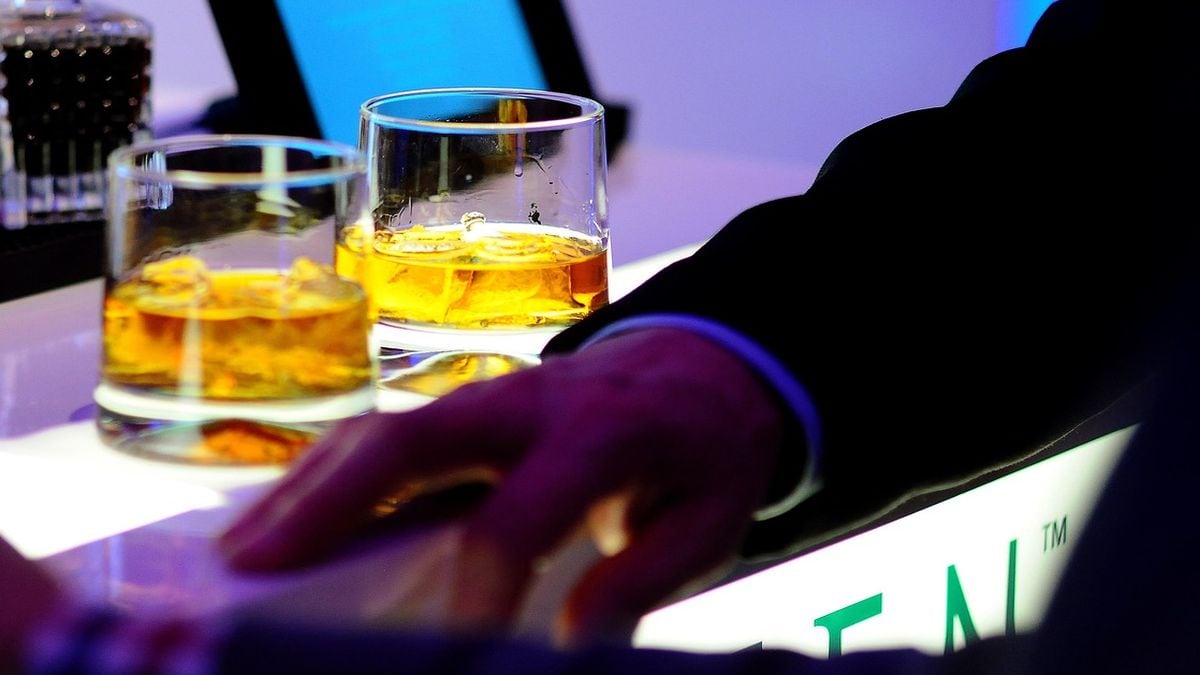

The recently signed India-UK Free Trade Agreement (FTA) has stirred considerable excitement among Indian consumers, particularly those with a penchant for Scotch whisky. The agreement promises to slash import duties on British spirits, potentially leading to cheaper prices. However, the reality might not entirely align with these expectations.
Under the FTA, India will immediately reduce tariffs on Scotch whisky from 150% to 75%. Over the next decade, this will further decrease to 40%. This reduction in import duties has been welcomed by Scotch distillers in the UK, who anticipate greater access to India, the world's largest whisky market by volume. Whisky was the UK's fifth-largest export product to India in 2024-25, with exports valued at approximately $260 million.
However, the Confederation of Indian Alcoholic Beverage Companies (CIABC) has voiced concerns about potential dumping, urging the government to prevent Scotch whisky from being sold at excessively low prices or routed through other countries to circumvent regulations. The CIABC had suggested the government introduce minimum import price (MIP) rules for Scotch to counter dumping; however, the agreement does not impose such rules.
Despite the reduction in import duties, the final consumer prices of premium Scotch brands in India may not decrease significantly. Alcohol taxes fall under the purview of state governments, and excise collections are a major revenue source for them. States may adjust their excise duties to maintain revenue, offsetting the benefits of reduced import duties.
Industry experts predict that the impact on consumer prices of imported Scotch whiskies will likely be in the range of ₹100-300 per bottle. For example, brands like Johnnie Walker Black Label and Chivas Regal 12 Years might become cheaper by ₹200-300 per bottle in the premium segment. In the standard segment, brands like Red Label and Ballantine's may see a price reduction of ₹100-150.
Vinod Giri, a liquor trade expert and director-general of the Brewers Association of India, suggests that the FTA's primary impact will be on the bottom lines of companies rather than a dramatic reshaping of the Indian whisky market. He notes that most Indian whisky producers import Scotch whisky for blending with domestic whiskies, and the reduction in customs duty will benefit these producers.
The FTA will apply to both bottled-in-origin (BIO) and bulk imports. Bulk imports are used to make Bottled in India (BII) products and for blending with Indian-made foreign liquor (IMFL). Sanjit Padhi, CEO of the International Spirits and Wines Association of India (ISWAI), believes that the deal will significantly benefit Indian consumers, as premium international spirits will become more accessible, accelerating the trend of premiumization.
The history of Scotch whisky in India dates back to British colonial rule, when it was introduced for British troops and administrators. It became a symbol of taste and social status, and it continues to be popular, especially in the premium and luxury segments. While Indian whisky brands have gained international recognition in recent years, Scotch remains a preferred choice for many.
In conclusion, while the India-UK FTA promises cheaper Scotch whisky due to reduced import duties, the actual price reduction for consumers may be modest. State excise policies and potential adjustments by companies could limit the impact on retail prices. The FTA is more likely to benefit Indian whisky producers who use imported Scotch for blending and to promote premiumization in the Indian spirits market.